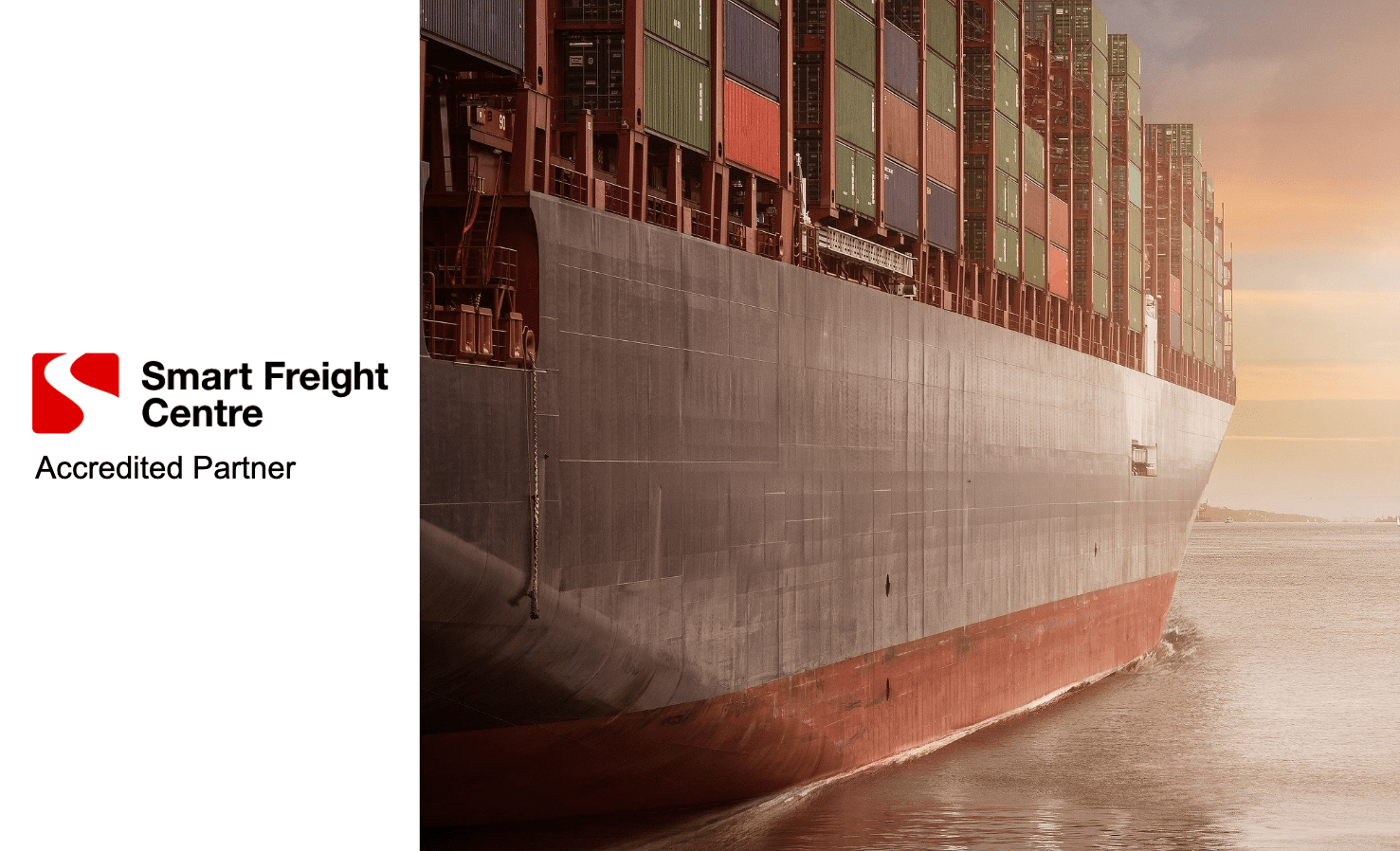
Smart Freight Centre Accredits Searoutes CO₂e freight emissions calculations
Update from the article presenting the first accreditation on June the 2nd 2021.
In 2025, the urgency to address carbon footprints has only intensified. The Paris Agreement and global efforts to combat climate change have driven industries worldwide to take decisive action. The logistics sector, in particular, faces a critical challenge: transport accounts for 13% of global greenhouse gas (GHG) emissions, which means it is the third-largest contributor after industry and buildings. Freight transportation alone represented 36% of transport emissions, and without intervention, these emissions are projected to more than double by 2050.
Regulatory pressure and public awareness are pushing logistics stakeholders to act. However, calculating CO₂e emissions has historically been fragmented, with disparate methodologies making comparisons across transport modes difficult—like comparing apples to oranges. This is where the Smart Freight Centre (SFC) and its Global Logistics Emissions Council (GLEC) Framework play a pivotal role, standardizing carbon accounting across the industry.
About Smart Freight Centre (SFC)
Smart Freight Centre (SFC) is a global non-profit organization dedicated to achieving an efficient and zero-emissions freight sector. SFC brings together the logistics community through GLEC to unify carbon accounting, set reduction targets, and drive collaborative action. Their expertise and network position them as leaders in accelerating sector-wide emissions reductions.
Searoutes and SFC Accreditation
Searoutes’ methodology for estimating CO₂ emissions is accredited by Smart Freight Centre, ensuring compliance with the GLEC Framework for logistics emissions. Our approach is designed to provide granular, accurate, and actionable emissions data for all logistics stakeholders—carriers, freight forwarders, and shippers—enabling informed decision-making and emissions reduction strategies.
Key Features of Searoutes’ Methodology
| Mode | SFC Accredited | Data Source | Asset Coverage | Distances | Regions Coverage | Fuel Types |
| 🚢 SEA | ✅ | Modelled & Default Data | +10,000 vessels | Routes based on AIS | World* | HFO, VLSFO, ULSFO, MDO, MGO, LNG, BIOLNG, LSMGO, Methanol, Biomethanol, IFO380, UCO, Methanol Coal, Methanol Gas, Methanol renewables |
| ✈️ AIR | ✅ | Modelled & Default Data | +40 airplanes | Great circle or based on flight number | World* | |
| 🚚 ROAD | ✅ | Default Data | 12 truck categories | Road network | World* | Diesel, CNG, LNG, HVO, Electric, BioLNG, BioCNG, Biodiesel and its multiple blends |
| 🚄 RAIL | ✅ | Default Data | Open Rail Map | World* | Diesel, Electric | |
| 🛥️ INLAND WATERS | ✅ | Default Data | 7 vessel types | Routes based on AIS | Europe, North America, China | Diesel |
We use region specific emissions factors when available.
Philosophy
Searoutes’ APIs estimate CO₂e (carbon dioxide equivalent), the standard unit for measuring global warming impact. Our calculations cover Scope 3 emissions (indirect emissions from the supply chain) and include the full fuel life cycle(well-to-tank and tank-to-wheel). We prioritise granular data and user-friendly integration solutions (Drop, Dashboards or API) to make emissions tracking seamless and actionable.
Searoutes’ Special Sauce
- 🚢 SEA: Actual vessel trajectories, distances and speeds, passages & ECA zones, IMO-specific, vessel engine specific
- ✈️ AIR: All flight phases, flight number, Aircraft IATA specific
- 🚚 ROAD: Seamless integration of the location of cities and zip codes
- 🚄 RAIL: Seamless integration of the location of cities and rail terminals
- 🛥️ INLAND WATERS: Actual distances and draft restrictions
Why SFC Accreditation Matters
Searoutes is committed to making CO₂ emissions estimation accessible, accurate, and integrated into logistics decision-making. Our API can be embedded at multiple touchpoints—from tendering and booking to reporting—providing emissions data tailored to the granularity of your input (e.g., vessel IMO, aircraft IATA, or port/airport pairs).
How Searoutes Supports Your Carbon Reduction Strategy
- For Shippers: Automated reports and analytics to compare emissions performance by mode, carrier, service, or vehicle.
- For Freight Forwarders: Adaptable solutions for tendering, booking, invoicing, and reporting, aligned with your business structure.
Partners and References
Searoutes collaborates with leading organizations to enrich and distribute CO₂e data:
Our methodology is grounded in:
- GLEC Framework version 3 (2023)
- Third/Fourth IMO Greenhouse Gas Study 2020
- EMEP/EEA Air Pollutant Emission Inventory Guidebook 2019
Ready to reduce your Freight Emissions footprint? Explore our API documentation or contact us to learn how Searoutes can support your sustainability goals.